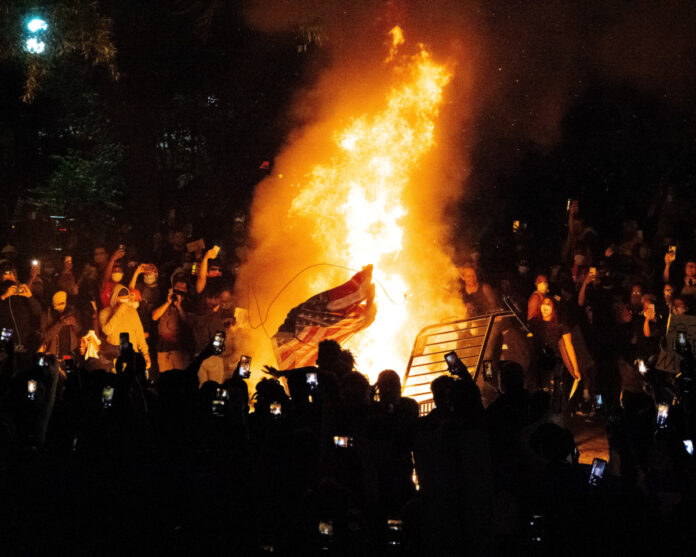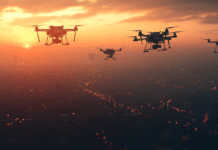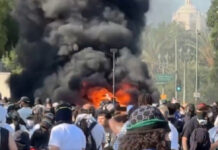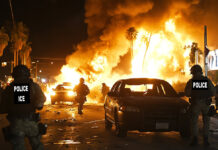Election Day is in 145 days, which means you have less than five months to prepare for whatever will happen. I’m not talking about who will win, I’m talking about how the country will react. If the past two elections are any guide, there might be protests that dissolve into riots. There might be violence on city streets. (That is to say, more violence than we already see in cities with weak district attorneys and diminished police forces.)
Some election-related problems might strike early. For example, you should expect mass protests at the national political conventions. Social media bots might also try to provoke outrage and violence before the election, as could paid agitators or sleeper cell members from Russian intelligence or Arab states. They could do this hoping to disrupt the vote. Likewise, some of those military-age males and gang members who sneak into our country might go on violent sprees right around election time, scaring people into staying home or intimidating those that show up.
While I don’t think it is likely, some fear bird flu will give the government an excuse to institute lockdowns and require voting my mail. Or a war between NATO and Russia could be an excuse to declare martial law, where the election is suspended.
So enjoy the summer, but use the next few months to prep.
Riots and Looting
It may be polite to call the large gatherings of people upset about election results a “protest,” but as things get unruly, it is often more accurate to call it civil unrest. You need to prepare for the many faces of civil unrest.
When groups march down the street chanting, it’s a protest march. If they throw bricks, shoot fireworks at police, resist police commands and set police on fire, it’s civil unrest. When they set buildings on fire, smash storefront windows, and attack police officers and uninvolved civilians, it’s a riot. If they use a riot as cover to steal from stores, break into ATMs, and commit other crimes, it’s looting. You should prepare for all of the above.
Like any potential trouble, the best way to avoid getting caught up in civil unrest is to stay away from areas where trouble is likely to be found. I lived in New York City back in the 1980s, but I don’t understand why anyone would stay in a city these days. We used to deal with graffiti on subways; that seems pretty tame now that people are being pushed onto tracks. Thieves used to grab gold chains and rip them off women’s necks. Now the danger is they will grab the women. Criminals used to disrespect the police; now they shoot them.
I know urban prepping is a thing, but I don’t encourage city living for preppers.
Martial Law
We are brought up to consider martial law something the government does to help the people through a tough time, but that’s not true. It is to get the government through a tough time, not we the people. Just like curfew and travel restrictions, martial law is declared to control we the people and to stop us from speaking our minds and exercising their rights.
When I think of the government doing things “for our safety”, I can’t help but think of the scene in the movie Knight and Day when Tom Cruise’s character warns Cameron Diaz’s character that when the government people tell her they are taking her somewhere “safe and secure” for her own protection, it is anything but.
Out here in the hinterlands, I expect most residents will ignore martial law, much like we did many of the COVID restrictions. There are too many back roads patrolled by too few sheriff deputies to control us all. They may force businesses to shut down at night, but this is an area that still has an active moonshine culture and kids who party in barns and park down dirt roads that require four-wheel drive. I doubt we’ll have much to worry about.
In large urban areas, where most people live, they’ll clamp down. But don’t worry, it will be for “your own good.” And when they come to confiscate your stuff, they’ll tell you it’s “for the greater good.”
Make Basic Preps
The good news is, it’s easier to prepare for a few months of martial law or civil unrest than it is to prepare for a global war or a total collapse. Just have some food in the house so you don’t have to leave at an inopportune time. Store some water and have a way to cook in case the utilities get disrupted. Be prepared to protect yourself if someone kicks in your front door. Hopefully, the problem goes away when the weather grows cold. (Protesters like their comfort. Plus, it’s hard to protest in a snowstorm.)
During periods of martial law, expect there to be other restrictions, including limits on how much you can buy and rationing for critical foodstuffs, gasoline, and other resources. You can prepare for this by having your own store of goods to draw upon when the government limits what you can buy.
Know When to Go
If the situation persists, have a place to go where they will take you in, like family who live in the country. I wrote about bugging out on Monday, so take a look at what you should bring when you go. Your goal should be to bug out before the police put up roadblocks or the protesters shut down the interstate by blocking the lanes.
If there is extensive unrest and you hear media reports stating the governor is going to have a big press conference at 5 p.m., you should probably be on the road well before then. Fast-breaking local situations like protests are one of the few times when monitoring tweets on X might be helpful. During the Black Lives Matter protests, feeds on what was then known as Twitter were far more informative and real-time than media coverage.







